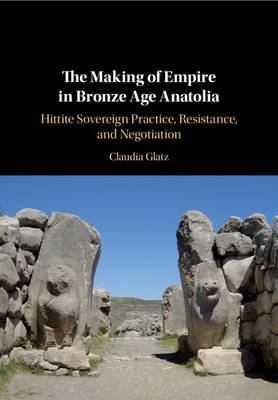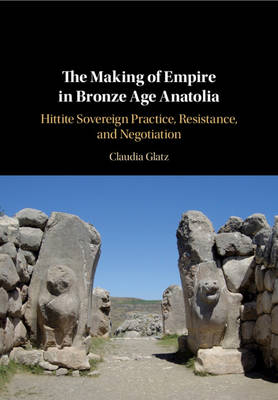
- Afhalen na 1 uur in een winkel met voorraad
- Gratis thuislevering in België vanaf € 30
- Ruim aanbod met 7 miljoen producten
- Afhalen na 1 uur in een winkel met voorraad
- Gratis thuislevering in België vanaf € 30
- Ruim aanbod met 7 miljoen producten
Zoeken
The Making of Empire in Bronze Age Anatolia
Hittite Sovereign Practice, Resistance, and Negotiation
Claudia Glatz
Hardcover | Engels
€ 148,45
+ 296 punten
Omschrijving
In this book, Claudia Glatz reconsiders the concept of empire and the processes of imperial making and undoing of the Hittite network in Late Bronze Age Anatolia. Using an array of archaeological, iconographic, and textual sources, she offers a fresh account of one of the earliest, well-attested imperialist polities of the ancient Near East. Glatz critically examines the complexity and ever - transforming nature of imperial relationships, and the practices through which Hittite elites and administrators aimed to bind disparate communities and achieve a measure of sovereignty in particular places and landscapes. She also tracks the ambiguities inherent in these practices -- what they did or did not achieve, how they were resisted, and how they were subtly negotiated in different regional and cultural contexts.
Specificaties
Betrokkenen
- Auteur(s):
- Uitgeverij:
Inhoud
- Aantal bladzijden:
- 350
- Taal:
- Engels
Eigenschappen
- Productcode (EAN):
- 9781108491105
- Verschijningsdatum:
- 12/11/2020
- Uitvoering:
- Hardcover
- Formaat:
- Genaaid
- Afmetingen:
- 178 mm x 254 mm
- Gewicht:
- 884 g

Alleen bij Standaard Boekhandel
+ 296 punten op je klantenkaart van Standaard Boekhandel
Beoordelingen
We publiceren alleen reviews die voldoen aan de voorwaarden voor reviews. Bekijk onze voorwaarden voor reviews.











